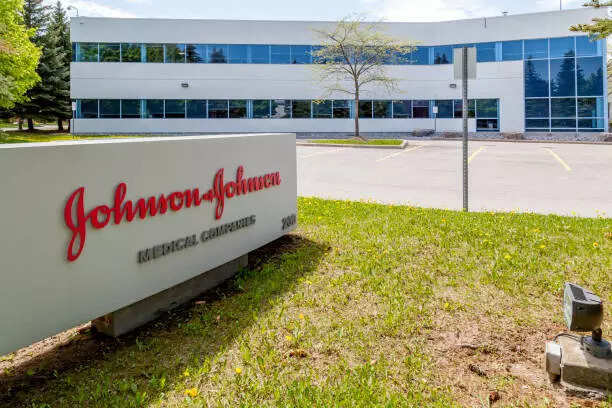预约演示
更新于:2026-02-07
KP-723
更新于:2026-02-07
概要
基本信息
非在研机构- |
最高研发阶段临床前 |
首次获批日期- |
最高研发阶段(中国)- |
特殊审评- |
关联
100 项与 KP-723 相关的临床结果
登录后查看更多信息
100 项与 KP-723 相关的转化医学
登录后查看更多信息
100 项与 KP-723 相关的专利(医药)
登录后查看更多信息
16
项与 KP-723 相关的新闻(医药)2026-01-13
·津津药道
2024年5月,强生以12.5亿美元的现金价格从瑞士Numab获得NM26(IL-4Rα/IL-31双抗)用于治疗特应性皮炎(AD)。
然而仅18个月后的2025年12月,强生宣布因2b期临床中期分析结果未达预期,终止NM26(JNJ-5939)的继续开发。
值得注意的是,NM26在日本、中国、韩国和其它亚洲地区的商业权利早在2021年就被日本科研制药(Kaken Pharmaceutical)购得。
更有趣的是,在2024年12月,强生以首付3000万美元、超12亿美元里程碑的价格与科研制药合作开发口服STAT6(信号转导及转录激活因子6)抑制剂KP-723。
强生获得KP-723在全球(除日本外)的开发、制造及商业化独家权利。科研制药保留在日本的商业化权利,且强生拥有在日本进行共同推广的优先选择权。
根据协议,科研制药负责推进KP-723的1期临床试验。而该试验已于2025年启动,旨在评估其在AD患者中的安全性及药代动力学。在1期临床试验完成后,强生将全面接手该药物的全球临床开发和商业化工作。
强生、Numab、科研制药之间在AD领域呈现出既合作又竞争的复杂关系(图1)。
图1. 强生、Numab、科研制药关系图
强生拥有全球顶级的临床、注册、商业化能力,同时在AD领域做了广泛的布局,吸引了包括Numab及科研制药在内的中小药企与其合作。而Numab及科研制药这样的中小药企之间的合作、取长补短也是推动创新药研发的重要方式。
2025年12月,美国麻省的Kymera Therapeutics宣布,其first-in-class STAT6 PROTAC药物KT-621在中重度AD患者中开展的BroADen 1b期临床试验取得积极结果。
KT-621在100mg和200mg剂量组均实现显著的STAT6降解,皮肤和血液中STAT6水平中位数分别降低94%和98%,展现出从健康志愿者到AD患者的良好转化效果。同时,KT-621可显著降低血液中多种2型疾病相关生物标志物水平,减少皮损部位核心2型炎症及AD相关基因集表达。
STAT6是IL-4和IL-13细胞因子信号传导的关键节点,这些细胞因子是AD和哮喘等2型炎症疾病的核心驱动因素。口服型STAT6抑制剂被视为挑战杜普利尤单抗等注射用生物制剂的“下一代”疗法。
与PROTAC降解剂KT-621结构不同,KP-723通过直接结合STAT6蛋白(可能是其SH2结构域),抑制其磷酸化、二聚化或与受体的结合,从而阻断信号传导(图2)。因此KP-723分子量相对较小,不含庞大的E3连接酶配体,在口服生物利用度和细胞渗透性方面具有天然优势。
图2. STAT6信号通路
日本百年药企科研制药并不为大多数中国制药人熟知,其历史最早可以追溯到1917年成立的理化学研究所(RIKEN),它是日本极具科研背景的特色药企。
其发展历程可分为以下四个主要阶段:
1. 理研背景与诞生(1917年-1948年)
理研起源:1917年,作为日本唯一的自然科学综合研究所——理化学研究所(RIKEN)成立。
科研化学成立:1948年3月,为了将理化学研究所的研究成果实现商业化,科研化学株式会社正式成立。当时的主要任务是利用研究所的尖端技术生产稀缺药品(如青霉素)。
2. 核心产品的突破(1948年-1980年代)
抗真菌药奠基:20世纪50年代起,公司深耕真菌感染领域。1959年,公司推出了具有里程碑意义的抗真菌抗生素钝曲霉素(Variotin)。
正式更名:1982年,科研化学株式会社与化研化学株式会社合并,正式更名为现名:科研制药株式会社。
整形外科突围:1987年,公司推出了用于治疗骨关节炎的透明质酸钠注射液ARTZ。该产品后来成为日本乃至全球整形外科领域的重磅产品,奠定了公司在该领域的领导地位。
3. 专业化与全球化(1990年代-2010年代)
皮肤科巨头地位确立:2014年,公司推出了日本首个用于治疗甲真菌病的外用抗真菌药Clenafin(艾氟康唑)。这款产品不仅在日本取得巨大成功,还通过授权在全球多个国家(包括美国和中国)销售,成为公司的“现金奶牛”。
创新手术产品:2001年推出了用于促进伤口愈合的喷雾剂Fiblast(重组人碱性成纤维细胞生长因子),进一步强化了其在外科和皮肤科的竞争力。
4. 2020年代及未来:向“科研驱动型全球专科药企”转型
结构性改革(2020年至今):面对日本国内药品降价压力,公司制定了《2031年长期经营计划》,重点从“销售驱动”转向“研发驱动”。
BD交易爆发期:自2023年以来,公司通过频繁的国际合作(如与Alumis合作TYK2抑制剂、与Numab合作多抗[NM81])加速进入免疫学和罕见病领域。
2025年最新动向:公司正积极剥离低效率的非核心业务,并在2025年重点推进数字化转型(SaMD)和AI辅助药物开发,以期在2030年后实现全球化扩张。
科研制药的历史体现了从“学术研究转化机构”到“皮肤/骨科专科药企”,再到如今“全球免疫学挑战者”的演变。尽管规模属于中型,但其凭借在特定治疗领域(如甲真菌病、关节炎)的深厚技术积淀,在日本制药界占有不可替代的地位。
科研制药作为日本皮肤科市场的“守门人”,其2025年引进的TYK2抑制剂(ESK-001)与强生的资产在AD领域虽有竞争,但在联合用药研究上存在合作想象空间。
临床1期蛋白降解靶向嵌合体临床2期引进/卖出临床结果
2025-12-27
Bengaluru: Johnson & Johnson said on Friday it discontinued a mid-stage study of its experimental drug to treat patients with moderate to severe atopic dermatitis after it failed to meet efficacy goals in an interim analysis.
The drug,
JNJ-5939
, was being tested in patients with atopic dermatitis, or eczema, a skin condition that causes inflammation, redness and intense itching.
The drug was well-tolerated but did not meet the "high-bar" efficacy required to advance development, the company said.
Johnson & Johnson said it remains committed to developing treatments for atopic dermatitis, a chronic condition that affects more than 100 million people worldwide.
The company is developing other experimental treatments for atopic dermatitis, including
bispecific antibodies
NM26, PX128 and PX130, as well as an oral STAT6 inhibitor, KP-723.
Eczema has multiple approved treatments, such as Sanofi and Regeneron's Dupixent, AbbVie's Rinvoq, Pfizer's Cibinqo, Eli Lilly's Ebglyss, as well as some generic drugs such as cetirizine.
(Reporting by Siddhi Mahatole in Bengaluru; Editing by Shilpi Majumdar)

临床3期临床研究
2025-11-26
·禾开生物
summary
阅读导览
NO.1 STAT6靶点介绍
NO.2 STAT6靶点在自免新药研发中的进展
NO.3 STAT6靶点相关适应症与模型
01
STAT6靶点介绍
信号转导与转录激活因子6(STAT6)属于一个转录因子家族(STAT1,STAT2,STAT3,STAT4,STAT5a,STAT5b和STAT6),这些因子显示出相似的结构和功能。在小鼠和人类中,编码STAT6都与Nab2基因(编码一个转录共抑制子)非常接近(两个编码序列之间<2000bp),且STAT6的启动子似乎在大多数细胞类型中普遍且持续活跃。在STAT6蛋白结构中,包含SH2结构域、DNA结合域DBD、转录激活域TAD等,其中最突出的结构域是SH2,在STAT6中,SH2结构域有两个作用,首先,它提供了一个停靠结构域,用于结合受体胞质尾部上的磷酸化酪氨酸残基;其次,它使得活性STAT6能够二聚化。同时,STAT6还存在多种剪接异构体(如STAT6a、b、c)和翻译后修饰(磷酸化、乙酰化、甲基化、糖基化等)。最值得注意的是,近期多项研究证实非活化状态的STAT蛋白可通过N端发生二聚化,这一发现可能改变当前对STAT生命周期的认知范式。
图1 STAT6的蛋白质结构示意图 [1]
通常,STAT6主要被IL-4和IL-13激活,并作为Th2的转录激活因子。Jaks在未受刺激的细胞中附着在IL-4Rα受体的胞质尾部,当IL-4/13与其受体IL-4Rα或IL-13Rα1受体结合时,导致IL-4Rα受体尾部的Jaks的磷酸化和激活,然后Jaks磷酸化IL-4Rα上的三个酪氨酸残基(如Y575、Y603、Y631),为STAT6提供停靠位点。一旦STAT6结合到受体上,导致STAT6发生磷酸化并形成二聚体。STAT6二聚体进入细胞核后,募集CBP/p300、SRC-1、PARP-14和p/CIP等辅激活因子,最终调控包括Arg-1、Mrc-1、Fizz-1和Ym-1在内的靶基因转录表达。
图2 IL-4/-13激活STAT6信号通路[2]
此外,除经典的IL-4/IL-13诱导途径外,多种细胞因子、生长因子及信号分子可通过特定机制激活STAT6,但其激活具有细胞特异性、效力差异及机制局限性,具体如下:
表1非经典STAT6激活诱导因子总结表
02
STAT6靶点在自免新药研发中的进展
STAT6因缺乏传统小分子结合口袋,长期被视为“难成药靶点”。近年来,PROTAC(蛋白降解靶向嵌合体)技术的应用为其成药带来突破。例如,Kymera的KT-621通过靶向STAT6的SH2结构域,利用泛素-蛋白酶体系统实现蛋白降解,在I期临床试验中显示出90%以上的血液STAT6降解率,且安全性与安慰剂相当。该药物已启动针对中重度特应性皮炎的Ib期试验,并计划于2025年底至2026年初开展哮喘的IIb期研究。
图3 KT-621在预防和治疗性HDM哮喘模型中均能阻止疾病进展[10]
目前,有约32种药物处于研发阶段,最快的则是Kymera的KT-621,其大多在研适应症有哮喘、特应性皮炎、慢性阻塞性肺疾病、心血管疾病等相关疾病。所以,跨国药企加速布局。2025年1月,吉利德与LEOPharma达成17亿美元协议,开发口服STAT6抑制剂和降解剂,覆盖皮肤病和呼吸系统疾病。2025年6月,赛诺菲以1500万美元预付款从Nurix获得NX-3911(口服STAT6降解剂)的研发权益,并计划扩展至特应性皮炎和哮喘。强生以超12亿美元引进Kaken的KP-723(小分子抑制剂),预计2025年启动特应性皮炎的I期临床试验。
此外,Recludix与赛诺菲合作开发的REX-8756通过靶向STAT6的SH2结构域抑制其活性,临床前研究显示其在哮喘和特应性皮炎模型中疗效与Dupixent相当,且具备口服生物利用度。该药物计划于2025年提交IND申请,进入临床阶段。
表2 STAT6靶点主要在研药物及进展
图4 STAT6靶点新药研发格局(图源新药情报库)
03
STAT6靶点相关适应症与模型
以STAT6为靶点的治疗策略有可能在多种自免疾病中发挥作用,包括:哮喘(Asthma)、特应性皮炎(AD)、嗜酸性食管炎(EOE)、慢性阻塞性肺病(COPD)等、慢性鼻窦炎伴鼻息肉(CRS)和结节性痒疹(PN)等。
禾开生物以“多种属、多品系、多机制、多亚型”为模型建立策略,开发了包含上述疾病在内的多种自免模型,旨在为自身免疫病的药物研发提供更全面的模型参考,让药物研发人员在临床前实验中可以选择更有靶点针对性且更具临床转化价值的模型工具。
表3 禾开STAT6靶点相关适应症模型汇总
部分数据展示:
SEB和OVA诱导CRS模型:
慢性鼻窦炎的症状可能包括:面部压痛或压力、鼻后滴漏、流鼻涕或鼻塞、牙痛、耳痛和/或头痛、咳嗽、疲倦、耳痛、味觉和嗅觉丧失、口臭。其机制是粘膜表面持续炎症的多种免疫病理过程导致CRS。因此,CRS是一种多因素炎症性疾病,其确切发病机制仍不清楚。然而,不同的病因如金黄色葡萄球菌肠毒素(主要是肠毒素B(SEB))已被报道为该病的致病因素。金黄色葡萄球菌是常见的人类细菌之一,经常在健康个体的正常鼻腔微生物群中检测到。
图5 SEB+OVA诱导的BALB/c小鼠慢性鼻窦炎模型数据
哮喘(Asthma)模型:
哮喘的发病机制是由遗传、表观遗传和环境因素之间复杂的相互作用引起的。病理变化由多种类型的气道细胞和免疫细胞介导,包括气道上皮细胞、嗜酸性粒细胞和T细胞亚群。特别是,Th2细胞被认为在高嗜酸性哮喘中占主导地位,其特点是IL-4、IL-5和IL-13水平升高。屋尘螨(HDM)是最常见的空气传播过敏原,全球85%的哮喘患者对其过敏。HDM是一种免疫复合物,能够激活先天免疫和适应性免疫反应。研究表明,HDM中的蛋白酶,如胰蛋白酶样酶,在过敏反应中起促进作用,导致对尘螨的敏感性。将HDM提取物用生理盐水稀释后,通过鼻内给药,持续4周或15周。在每个实验结束时,测量血清IgE水平。
图6 HDM诱导的C57BL/6小鼠哮喘模型数据
DNFB+OVA诱导的BALB/c小鼠特应性皮炎(AD)模型:
特应性皮炎患者临床上表现为皮肤红斑、皮疹、血清IgE和2型T辅助细胞(Th2)细胞因子水平升高,例如IL-4和IL-13。镜下观察,特应性皮炎患者还表现出表皮增生以及肥大细胞和Th2细胞的堆积。当小鼠剃光后的背部皮肤暴露于DNFB时,细胞毒性T淋巴细胞被募集到皮肤上,导致角质细胞凋亡和进一步的皮肤屏障功能障碍,OVA则诱导AD样皮炎的发展,其特征是OVA特异性IgE和血清总IgE,以及Th2细胞因子和IFN-γ的表达增加。然而,OVA诱导ad样皮炎耗时长,且皮肤病变通常较轻。因此,我们设计了这项研究来评估DNFB和OVA联合应用的潜力,以建立一个新的AD小鼠模型,概括急性到慢性特应性皮炎进展过程中辅助性t细胞反应的动态变化。
图7 DNFB+OVA诱导的BALB/c小鼠特应性皮炎模型数据
OVA&OXA诱导的BALB/c小鼠结节性痒疹模型:
结节性痒疹是一种慢性炎症性皮肤病,以剧痒和结节性损害为特征。病因与昆虫叮咬,胃肠功能紊乱,内分泌代谢障碍及神经、精神因素有关。为了进一步了解痒疹背后的免疫学事件,我们建立了一种新的小鼠模型,其特征是IgE诱导的瘙痒性持续丘疹性皮肤病变。
图8 OVA&OXA诱导的BALB/c小鼠结节性痒疹模型数据
香烟烟雾诱导的SD大鼠慢性阻塞性肺病(COPD)模型:
慢性阻塞性肺病(COPD)是一种慢性炎症性肺部疾病,会导致肺部气流受阻。症状包括呼吸困难、咳嗽、产生粘液(痰)和喘息。通过香烟烟雾(CS)诱导的模型仍然是最受欢迎的模型之一,因为它不仅模拟了呼吸系统中类似COPD的病变,而且它也是基于导致人类COPD的主要有害物质之一。该模型操作相对简便、重复性好,可通过调整烟雾暴露时间和浓度控制疾病严重程度,适合研究COPD的发病机制、评估潜在治疗药物的疗效(如抗炎、抗重塑药物),是目前应用最广泛的COPD实验模型之一。
图9 香烟烟雾诱导的SD大鼠慢性阻塞性肺病模型数据
此外,根据客户的特殊需求,禾开还可以提供订制模型服务,同时也乐于参与并协助各类自身免疫疾病相关药物研发工作,欢迎感兴趣的各位随时询问和指教。
文末小好奇:
参考文献:
[1]HebenstreitD,WirnsbergerG,Horejs-HoeckJ,DuschlA.Signalingmechanisms,interactionpartners,andtargetgenesofSTAT6.CytokineGrowthFactorRev.2006Jun;17(3):173-88.doi:10.1016/j.cytogfr.2006.01.004.Epub2006Mar15.PMID:16540365.
[2]HuangH,ZhengY,LiL,ShiW,ZhangR,LiuH,ChenZ,WuL.Therolesofpost-translationalmodificationsandcoactivatorsofSTAT6signalingintumorgrowthandprogression.FutureMedChem.2020Nov;12(21):1945-1960.doi:10.4155/fmc-2020-0224.Epub2020Aug11.PMID:32779479.
[3]QuelleFW,ShimodaK,ThierfelderW,FischerC,KimA,RubenSM,etal.CloningofmurineStat6andhumanStat6,StatproteinsthataretyrosinephosphorylatedinresponsestoIL-4andIL-3butarenotrequiredformitogenesis.MolCellBiol1995;15(6):3336–43.
[4]MasudaA,MatsuguchiT,YamakiK,HayakawaT,KuboM,LaRochelleWJ,YoshikaiY.Interleukin-15inducesrapidtyrosinephosphorylationofSTAT6andtheexpressionofinterleukin-4inmousemastcells.JBiolChem.2000Sep22;275(38):29331-7.doi:10.1074/jbc.M910290199.PMID:10882748.
[5]PatelBK,WangLM,LeeCC,TaylorWG,PierceJH,LaRochelleWJ.Stat6andJak1arecommonelementsinplatelet-derivedgrowthfactorandinterleukin-4signaltransductionpathwaysinNIH3T3fibroblasts.JBiolChem.1996Sep6;271(36):22175-82.doi:10.1074/jbc.271.36.22175.PMID:8703030.
[6]HundleyTR,GilfillanAM,TkaczykC,AndradeMV,MetcalfeDD,BeavenMA.KitandFcepsilonRImediateuniqueandconvergentsignalsforreleaseofinflammatorymediatorsfromhumanmastcells.Blood.2004Oct15;104(8):2410-7.doi:10.1182/blood-2004-02-0631.Epub2004Jun24.PMID:15217825.
[7]MascarenoE,DharM,SiddiquiMA.Signaltransductionandactivatoroftranscription(STAT)protein-dependentactivationofangiotensinogenpromoter:acellularsignalforhypertrophyincardiacmuscle.ProcNatlAcadSciUSA.1998May12;95(10):5590-4.doi:10.1073/pnas.95.10.5590.PMID:9576927;PMCID:PMC20422.
[8]GhilardiN,ZieglerS,WiestnerA,StoffelR,HeimMH,SkodaRC.DefectiveSTATsignalingbytheleptinreceptorindiabeticmice.ProcNatlAcadSciUSA.1996Jun25;93(13):6231-5.doi:10.1073/pnas.93.13.6231.PMID:8692797;PMCID:PMC39004.
[9]GuptaS,JiangM,PernisAB.IFN-alphaactivatesStat6andleadstotheformationofStat2:Stat6complexesinBc
作者:黄结群
审核:丁颖
编辑:景妍
禾开生物 ——“自身免疫模型专家”,是一家专注于自身免疫疾病领域体内药效服务的临床前研究 CRO 公司。禾开生物核心技术团队具备 20 年以上自身免疫疾病新药开发经验,公司已通过 ISO9001 质量体系认证,拥有位于苏州工业园区的分子、细胞、病理、小动物及检测试验基地,以及广西、苏州两地的非人灵长类试验基地。目前员工近 60 人,项目负责人均具有硕博士以上学历,团队累计完成过 300 多项新药 IND 申报经验,擅长处理自免新药研发和申报过程中的各种疑难问题。
• 20+非人灵长类动物自免疾病模型。
• 200+自身免疫性疾病动物模型。
• 300+项自身免疫性疾病IND申报经验。
免责声明:文章内容仅供参考,不构成投资建议。投资者据此操作,风险自担, 关于对文中陈述、观点判断保持中立,不对所包含内容的准确性、可靠性或完整性提供任何明示或暗示的保证。请读者仅作参考,并请自行承担全部责任。本公众号发布的各类文章重在分享,如有侵权请联系我们,我们将会删除。
临床1期蛋白降解靶向嵌合体
100 项与 KP-723 相关的药物交易
登录后查看更多信息
研发状态
10 条进展最快的记录, 后查看更多信息
登录
| 适应症 | 最高研发状态 | 国家/地区 | 公司 | 日期 |
|---|---|---|---|---|
| 炎症 | 临床前 | 日本 | 2024-12-26 |
登录后查看更多信息
临床结果
临床结果
适应症
分期
评价
查看全部结果
| 研究 | 分期 | 人群特征 | 评价人数 | 分组 | 结果 | 评价 | 发布日期 |
|---|
No Data | |||||||
登录后查看更多信息
转化医学
使用我们的转化医学数据加速您的研究。
登录
或

药物交易
使用我们的药物交易数据加速您的研究。
登录
或

核心专利
使用我们的核心专利数据促进您的研究。
登录
或

临床分析
紧跟全球注册中心的最新临床试验。
登录
或

批准
利用最新的监管批准信息加速您的研究。
登录
或

特殊审评
只需点击几下即可了解关键药物信息。
登录
或

生物医药百科问答
全新生物医药AI Agent 覆盖科研全链路,让突破性发现快人一步
立即开始免费试用!
智慧芽新药情报库是智慧芽专为生命科学人士构建的基于AI的创新药情报平台,助您全方位提升您的研发与决策效率。
立即开始数据试用!
智慧芽新药库数据也通过智慧芽数据服务平台,以API或者数据包形式对外开放,助您更加充分利用智慧芽新药情报信息。
生物序列数据库
生物药研发创新
免费使用
化学结构数据库
小分子化药研发创新
免费使用

